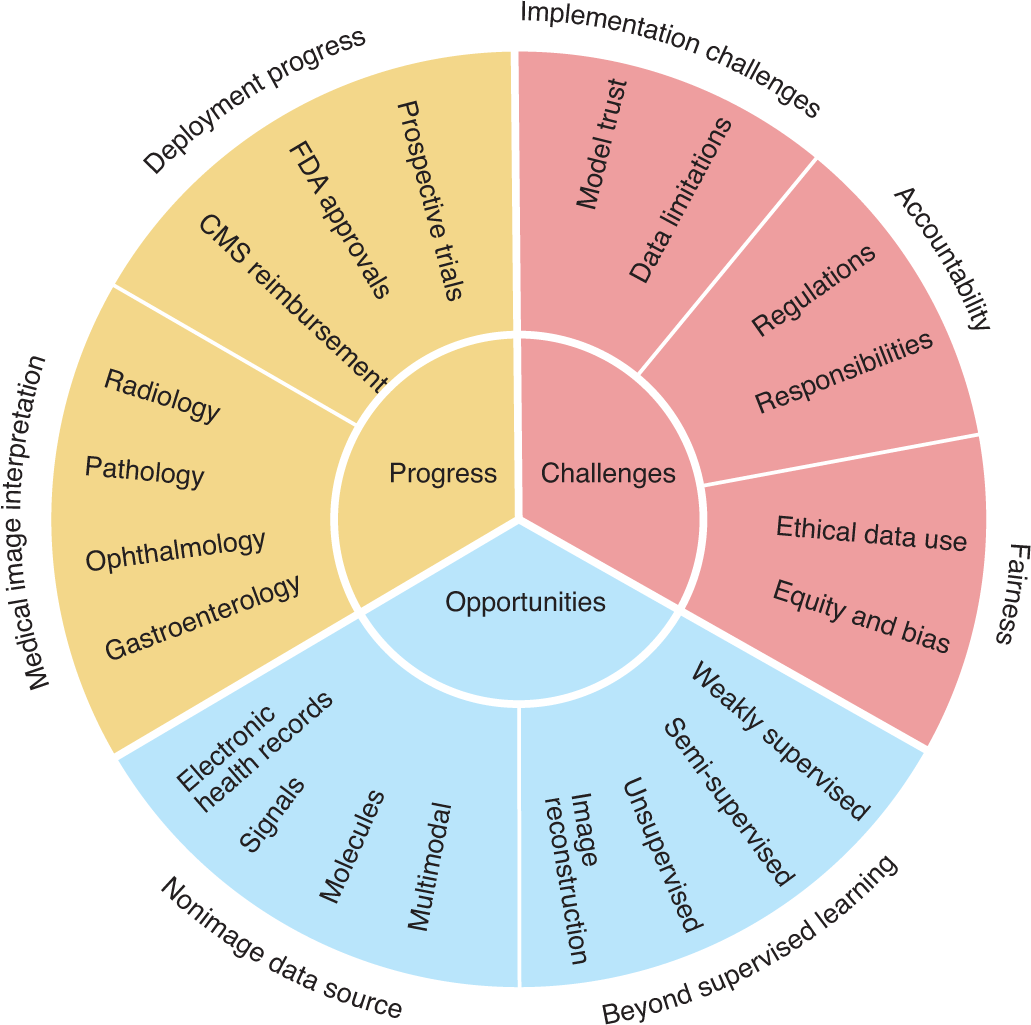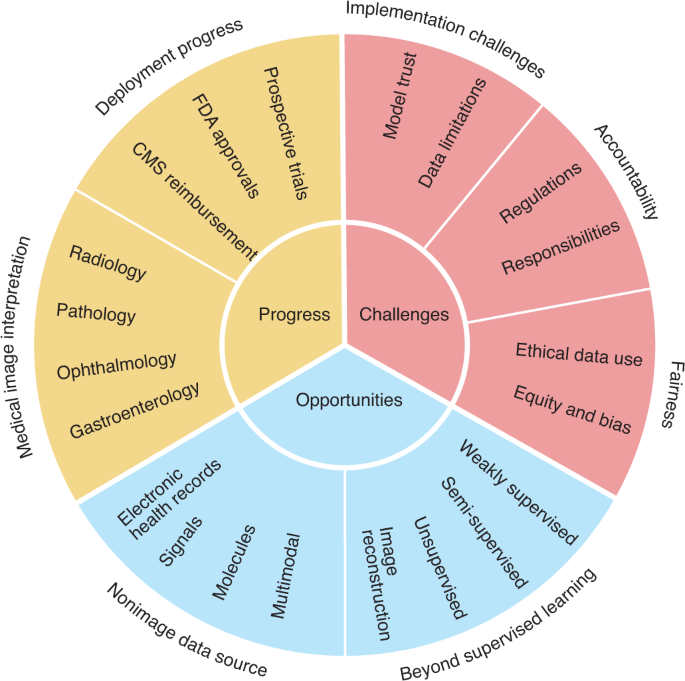Main Point
AI in health and medicine is revolutionizing the way healthcare is delivered. It's being used for tasks like analyzing complex medical data, diagnosing diseases, personalized treatment plans, drug discovery, and even robotic surgeries, enhancing efficiency and improving patient outcomes. AI algorithms can process vast amounts of data quickly, aiding medical professionals in decision-making processes and ultimately leading to more accurate diagnoses and treatments. Researchers and developers continue to explore new applications, making significant strides in the field of healthcare.
4 Salient Points
AI in healthcare utilizes various non-image data sources to improve patient care and streamline processes. Some of these sources include: Electronic Health Records, Text-Based Data, Sensor Data, Genomic Data, Patient Surveys and Feedback, Prescription Data, Billing and Administrative Data. These non-image data sources demonstrate the diverse applications of AI in healthcare beyond traditional medical images.
In the realm of AI in healthcare, unconventional problem formulations refer to innovative ways of approaching challenges that may not have straightforward solutions. Here are a few examples:Early Disease Detection, Predictive Interventions, Patient Mental Health Monitoring, Optimizing Resource Allocation, Healthcare Fraud Detection, Community Health Analysis. These unconventional approaches showcase the versatility of AI in healthcare, allowing for creative problem-solving and addressing complex challenges in innovative ways.
Human-AI collaboration, often referred to as augmented intelligence or intelligence amplification, represents a synergistic relationship where humans and artificial intelligence systems work together to enhance each other's capabilities. Human-AI collaboration holds the potential to revolutionize various fields, fostering innovation, improving efficiency, and addressing challenges that neither humans nor AI can solve in isolation.
AI streamlines administrative tasks, manages schedules, optimizes resource allocation, and enhances workflow efficiency, allowing healthcare professionals to focus more on patient care.
🎯Research Appendix



